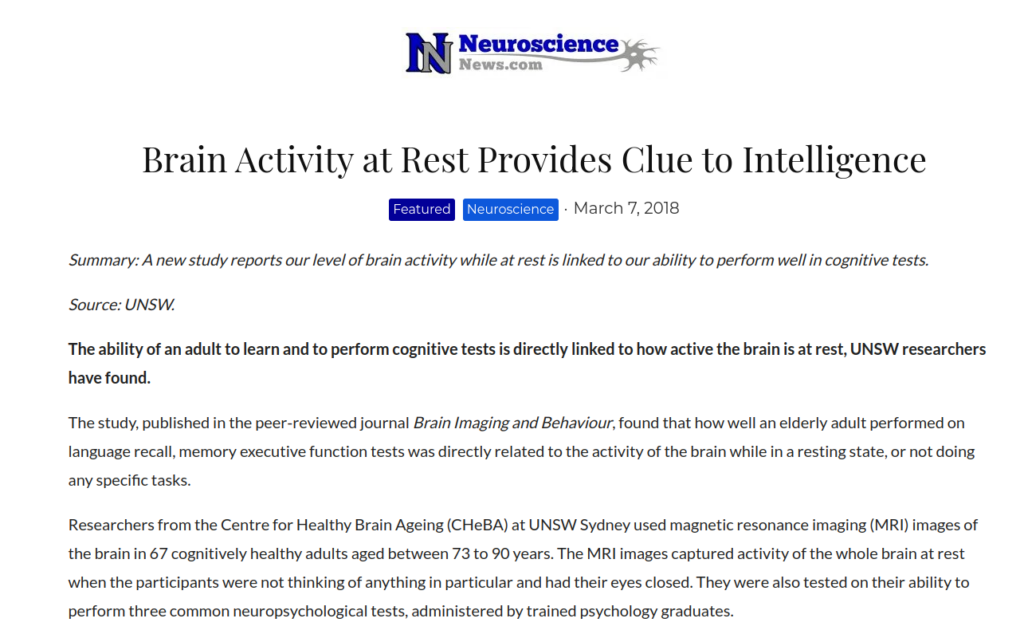Publication
Neuroscience News
Abstract
The ability of an adult to learn and to perform cognitive tests is directly linked to how active the brain is at rest, UNSW researchers have found.
Web and Email Links
Related Listings
Journal
PLOS ONE
Introduction Irritable Bowel Syndrome (IBS) and Inflammatory Bowel Disease (IBD) can profoundly affect quality of life and are influenced by stress and resiliency. The impact of mind-body interventions (MBIs) on IBS and IBD patients has not previously been examined. Methods Nineteen IBS and 29 IBD patients were enrolled in a 9-week relaxation response based mind-body group intervention (RR-MBI), focusing on elicitation of the RR and cognitive skill building. Symptom questionnaires […]
Journal
Intelligence
High intelligence is touted as being predictive of positive outcomes including educational success and income level. However, little is known about the difficulties experienced among this population. Specifically, those with a high intellectual capacity (hyper brain) possess overexcitabilities in various domains that may predispose them to certain psychological disorders as well as physiological conditions involving elevated sensory, and altered immune and inflammatory responses (hype […]
Journal
The Clinical Journal of Pain
The treatment of chronic pain is costly and frustrating for the patient, health care provider, and health care system. This is due, in part, to the complexity of pain symptoms which are influenced by behavior patterns, socioeconomic factors, belief systems, and family dynamics as well as by physiological and mechanical components. Assessment of treatment outcomes is often limited to the patient's subjective, multidimensional, self-reports. Outcome measures based on data about return t […]

